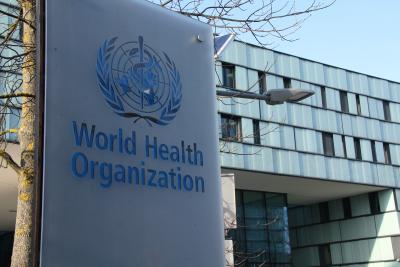The World Health Organization, appears to be in for a drastic overhaul as it is being blamed for the slow and tardy handling of the COVID-19 pandemic. Senior officials of the UN agency have also come under fire for not carrying out properly the probe into the origin of the coronavirus outbreak in the Chinese city of Wuhan.
Health ministers of various countries agreed on Monday to look at recommendations for extensive reforms made by independent experts to strengthen the capacity of both the U.N. agency and countries to contain new pathogens.
The experts, who found crucial failures in the global response in early 2020, said that the WHO should be given the power to send investigators swiftly to chase down new disease outbreaks and to publish their full findings without delay.
A resolution submitted by the European Union was adopted by consensus, member states to go for major reforms after thrashing out the issue in a year-long process.
Health ministers from WHO's 194 member states will also meet from Nov. 29 to consider whether there is a need to put in place an international treaty aimed at boosting defences against any future pandemic.
A panel, headed by former New Zealand Prime Minister Helen Clark and Ellen Johnson Sirleaf, a former president of Liberia, said that a new global system should be set up to respond faster to disease outbreaks to help ensure no future virus causes a pandemic as devastating as COVID-19.
WHO emergencies director, Mike Ryan, welcomed the decisions, telling its annual ministerial assembly: "Right now the pathogens have the upper hand, they are emerging more frequently and often silently in a planet that is out of balance. "We need to turn that very thing that has exposed us in this pandemic, our interconnectedness, into a strength," he said.
The decisions, approved in the committee, are due to be formally adopted in a plenary session later on Monday, the last day of its week-long assembly.
They also called for setting up a Global Health Threats Council, to be led at the head of state and government level, to maintain political commitment to pandemic preparedness.



















